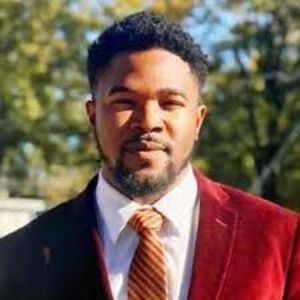








Oxford Treatment Center
Verified Center
This provider's information has been quality-checked by Recovery.com's Research Team for accuracy and completeness, including center verification through appropriate third-party organizations.
Treatment Focus
This center treats substance use disorders and co-occurring mental health conditions. Your treatment plan addresses each condition at once with personalized, compassionate care for comprehensive healing.
Primary Level of Care
Offering intensive care with 24/7 monitoring, residential treatment is typically 30 days and can cover multiple levels of care. Length can range from 14 to 90 days typically.
Treatment Focus
This center treats substance use disorders and co-occurring mental health conditions. Your treatment plan addresses each condition at once with personalized, compassionate care for comprehensive healing.
Primary Level of Care
Offering intensive care with 24/7 monitoring, residential treatment is typically 30 days and can cover multiple levels of care. Length can range from 14 to 90 days typically.
Provider's Policy
Oxford accepts many major insurers. If your insurance is in-network, all or a portion of your treatment costs may be covered.
Oxford Treatment Center
Oxford Treatment Center
About Oxford Treatment Center
Oxford Treatment Center offers hope and healing for people facing both addiction and co-occurring mental health disorders. On a peaceful 100-acre campus surrounded by forest and lake, Oxford provides a complete continuum of care designed to meet clients wherever they are in their recovery journey. From the safety of on-site medical detox with 24/7 nursing, to the structure of residential treatment, and the flexibility of outpatient therapy, Oxford helps clients rebuild independence and gain momentum in recovery.
Experience Healing that Goes beyond Talk Therapy
Oxford Treatment Center combines the best of clinical expertise with experiential healing. Best practice therapies like cognitive behavioral therapy (CBT), dialectical behavior therapy (DBT), and medication-assisted treatment (MAT) provide clients with tools to manage cravings, build resilience, and strengthen emotional health. These experiential approaches bring recovery to life—year-round equine therapy helps clients rebuild trust and confidence, while art, music, yoga, and mindfulness open new ways to process emotions and find peace.
Step Outside to Peace and Adventure
Oxford Treatment Center is a true retreat tucked away in the beauty of a national forest. Clients live in comfortable, apartment-style cabins with separate quarters for men and women, where house managers and everyday conveniences like WiFi, laundry, and inviting common rooms create a sense of ease. Just steps outside, a private lake brings the chance to swim, fish, or simply soak in the stillness, while a fully equipped gym, sports courts, and year-round equine therapy inspire energy. Oxford’s setting also invites deeper reflection through a peaceful labyrinth walk, challenging ropes course, and dedicated 12-Step path.
Transform New Routines into Lasting Change
Oxford’s aftercare makes the next chapter less overwhelming by surrounding people with support that feels real and ongoing. Instead of suddenly facing life’s pressures alone, aftercare offers a safety net of check-ins, community, and guidance to help keep recovery strong. Here, setbacks are met with support instead of shame.

Highlights from the Center
Highlights
These highlights are provided by and paid for by the center.
Equine Therapy
Nature Lovers
Therapeutic Location
Certified Professionals
Center Overview
Treatment Focus
This center treats substance use disorders and co-occurring mental health conditions. Your treatment plan addresses each condition at once with personalized, compassionate care for comprehensive healing.
Joint Commission Accredited
The Joint Commission accreditation is a voluntary, objective process that evaluates and accredits healthcare organizations (like treatment centers) based on performance standards designed to improve quality and safety for patients. To be accredited means the treatment center has been found to meet the Commission's standards for quality and safety in patient care.

Oxford Treatment Center
Insurance Accepted




More American Addiction Centers Locations
Recovery.com Verified Listing
Recovery.com verified that the name, location, contact information and license to operate for this treatment provider are valid and up-to-date.

Joint Commission Accredited

Licensed
Recovery.com is an independent, third-party mental health resource. Verification does not imply endorsement and does not guarantee the quality of treatment services.
Meet Your Care Team

Mark Stovall
CEO
M. Ed., CAT, CMHT

Dr. Lucas Trautman
Oxford Medical Director
MD, MPH

Mat Douglas
Outpatient Director
MS, MBA

Amy Kannada
Director of Admissions
MHA, CADC

Paige Havens
Clinical Director
M.Ed., NCC, LPC

Amanda Tate
Quality Assurance Manager

Tori Ossenheimer
Director of Experiential Services
MS, CTRS

Vernon “Buddy” Robinson
Director of Operations

Barry Doughty
Direct Care Coordinator
ICADC-I, SAP, CPI-Instructor

Terrell L. Ivy
Case Manager
BA, CPSSP, ICADC-l
Your Care Options
Specializations
Alcohol
Using alcohol as a coping mechanism, or drinking excessively throughout the week, signals an alcohol use disorder.
Co-Occurring Disorders
A person with multiple mental health diagnoses, such as addiction and depression, has co-occurring disorders also called dual diagnosis.
Cocaine
Cocaine is a stimulant with euphoric effects. Agitation, muscle ticks, psychosis, and heart issues are common symptoms of cocaine abuse.
Heroin
Heroin is a highly addictive and illegal opioid. It can cause insomnia, collapsed veins, heart issues, and additional mental health issues.
Opioids
Opioids produce pain-relief and euphoria, which can lead to addiction. This class of drugs includes prescribed medication and the illegal drug heroin.
Who We Treat
Men and Women
Men and women attend treatment for addiction in a co-ed setting, going to therapy groups together to share experiences, struggles, and successes.
Veterans
Patients who completed active military duty receive specialized treatment focused on trauma, grief, loss, and finding a new work-life balance.
Treatment Services
Day Treatment
In a PHP, patients live at home but follow an intensive schedule of treatment. Most programs require you to be on-site for about 40 hours per week.
Detox
Detox fully and safely removes toxic substances from the body, allowing the next steps in treatment to begin with a clean slate.
Intensive Outpatient Program
In an IOP, patients live at home or a sober living, but attend treatment typically 9-15 hours a week. Most programs include talk therapy, support groups, and other methods.
Outpatient
During outpatient rehab, patients attend a structured treatment program while continuing to live at home.
Residential
In a residential rehab program, patients live onsite, with access to daily treatment and 24-hour care. An average stay is 30-90 days.
Approaches
Spiritual Emphasis
Spirituality connects patients to a higher power and helps strengthen their recovery, hope, and compliance with other treatment modalities.
Evidence-Based
A combination of scientifically rooted therapies and treatments make up evidence-based care, defined by their measured and proven results.
Personalized Treatment
The specific needs, histories, and conditions of individual patients receive personalized, highly relevant care throughout their recovery journey.
Twelve Step
Incorporating spirituality, community, and responsibility, 12-Step philosophies prioritize the guidance of a Higher Power and a continuation of 12-Step practices.
Therapies
1-on-1 Counseling
Patient and therapist meet 1-on-1 to work through difficult emotions and behavioral challenges in a personal, private setting.
Meditation & Mindfulness
A practiced state of mind that brings patients to the present. It allows them to become fully aware of themselves, their feelings, and the present moment.
Trauma-Specific Therapy
This form of talk therapy addresses any childhood trauma at the root of a patient's current diagnosis.
Mindfulness Therapy
This ancient practice can be mental, emotional, and even spiritual. In meditation, you focus your attention on the present moment without judgement.
Adventure Therapy
This experiential approach uses the physical and emotional challenges of outdoor activities as tools for personal growth.
Animal Therapy
Animals can inspire trust and self-worth. In this experiential therapy, guided interactions are used to improve social skills and emotion regulation.
Art Therapy
Visual art invites patients to examine the emotions within their work, focusing on the process of creativity and its gentle therapeutic power.
Equine Therapy
Guided interactions with trained horses, their handler, and a therapist can help patients improve their self-esteem, trust, empathy, and social skills.
Conditions We Treat
Personality Disorders
Personality disorders destabilize the way a person thinks, feels, and behaves. If untreated, they can undermine relationships and lead to severe distress.
Anxiety
Anxiety is a common mental health condition that can include excessive worry, panic attacks, physical tension, and increased blood pressure.
Bipolar
This mental health condition is characterized by extreme mood swings between depression, mania, and remission.
Depression
Symptoms of depression may include fatigue, a sense of numbness, and loss of interest in activities. This condition can range from mild to severe.
Obsessive Compulsive Disorder (OCD)
OCD is characterized by intrusive and distressing thoughts that drive repetitive behaviors. This pattern disrupts daily life and relationships.
Post Traumatic Stress Disorder
PTSD is a long-term mental health issue caused by a disturbing event or events. Symptoms include anxiety, dissociation, flashbacks, and intrusive thoughts.
Stress
Stress is a natural reaction to challenges, and it can even help you adapt. However, chronic stress can cause physical and mental health issues.
Trauma
Some traumatic events are so disturbing that they cause long-term mental health problems. Those ongoing issues can also be referred to as "trauma."
Substances We Treat
Alcohol
Using alcohol as a coping mechanism, or drinking excessively throughout the week, signals an alcohol use disorder.
Benzodiazepines
Benzodiazepines are prescribed to treat anxiety and sleep issues. They are highly habit forming, and their abuse can cause mood changes and poor judgement.
Chronic Relapse
Consistent relapse occurs repeatedly, after partial recovery from addiction. This condition requires long-term treatment.
Co-Occurring Disorders
A person with multiple mental health diagnoses, such as addiction and depression, has co-occurring disorders also called dual diagnosis.
Cocaine
Cocaine is a stimulant with euphoric effects. Agitation, muscle ticks, psychosis, and heart issues are common symptoms of cocaine abuse.
Drug Addiction
Drug addiction is the excessive and repetitive use of substances, despite harmful consequences to a person's life, health, and relationships.
Ecstasy
Ecstasy is a stimulant that causes intense euphoria and heightened awareness. Abuse of this drug can trigger depression, insomnia, and memory problems.
Heroin
Heroin is a highly addictive and illegal opioid. It can cause insomnia, collapsed veins, heart issues, and additional mental health issues.
Psychedelics
Hallucinogenic drugs—like LSD—cause euphoria and increased sensory experiences. When abused, they can lead to depression and psychosis.
Languages
Aftercare
Care Designed for Your Needs
Personal Amenities
Amenities
Special Considerations
Couples program
Using gentle clinical care, therapists guide patients and their partner through guided sessions to address issues and work towards lasting solutions.
Gender-specific groups
Patients in gender-specific groups gain the opportunity to discuss challenges unique to their gender in a comfortable, safe setting conducive to healing.
Healthy Meals are provided
Great food meets great treatment, with providers serving healthy meals to restore nutrition, wellbeing, and health.
LGBTQ group
Group therapy unites LGBTQ+ patients in a safe and culturally competent setting, encouraging peer support under the expert leadership of a therapist.
First Responders Program
Paramedics, police officers, firefighters, and others join in a specific First Responders program, usually focused on trauma, grief, and work-life balance.
Activities
Yoga
Yoga is both a physical and spiritual practice. It includes a flow of movement, breathing techniques, and meditation.

Learn More About the Center
A Day at Oxford Treatment Center
See an example of a day at Oxford’s residential facility by looking over a sample of their daily schedule.
FAQs for Oxford Treatment Center
Read through answers to Oxford Treatment Center’s most frequently asked questions to learn more about their services, payment, and policies.
Transition to Civilian Life
Delta News featureLearn exactly what makes transitioning to civilian life so hard and how to find footing again.s Oxoford’s COO Mark Stovall as he discusses how Oxford Treatment Center is meeting needs during and after the pandemic.
Signs of Needing Help
Read to learn the subtle—and not so subtle—signs that signal it’s time to reach out for help.
What people are saying
Treatment
4.9
Accommodations
4.8
Food & Nutrition
4.7
Value
4.8
Steve
Reviewed 02/05/25
Review from Rehabs.com
Steve
Reviewed 12/10/24
Review from Rehabs.com
Brent
Reviewed 11/18/24
Review from Rehabs.com
CB
Reviewed 11/15/24
Review from Rehabs.com
Austin
Reviewed 10/30/24
Review from Rehabs.com





